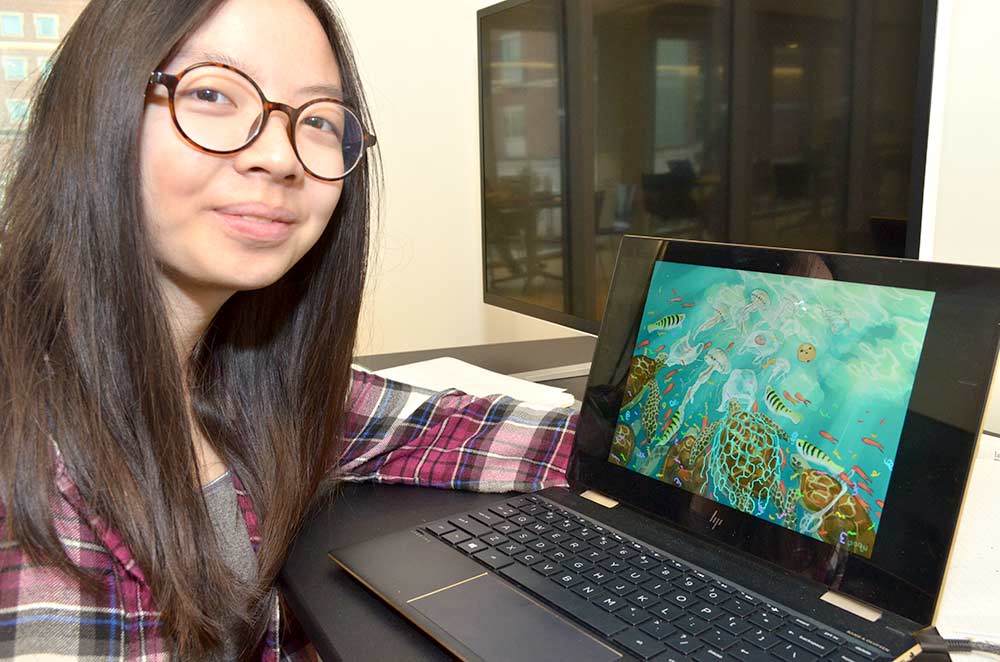Melissa Wen wins one of the Wells Award
Wells Award, given each year to high-achieving students in the Hajim School of Engineering and Applied Sciences who also excel in the humanities, as determined by highest GPAs at the end of their junior year.
Melissa has been working developing an algorithm to determine the feminine-masculine attribute from facial features. She is off to MIT this weekend to present a paper at the IEEE MIT undergrad conference. Her idea is simple—gender is no longer binary. The algorithms that we develop to recognize gender as M-F needs to take this reality into consideration. Her work shows a path forward.
Wen, who is from North Andover, Massachusetts, came to Rochester knowing she wanted to learn more about brain and cognitive science and studio art. Computer science wasn’t even on her radar.
However, as part of the requirements for a brain and cognitive sciences major, she took an introductory course in computer coding her first semester. “I think I just wanted to get it out of the way, but it was really fun,” Wen says. “I liked the problem-solving aspect of it.” She decided to take more computer science classes to “see if the computational side of BCS would be interesting to me.”
It was. A class her sophomore year on formal models of computation, taught by professor George Ferguson, convinced her to major in computer science as well. She enjoyed the challenges she encountered in projects for the class. “There were a lot of things I had to learn. But I liked the process,” she says.
She is now using computing skills in ways that augment her understanding of brain and cognitive science and even apply to her work in studio arts.
For example, her work in the ROCHCI lab of Ehsan Hoque, assistant professor of computer science and Asaro-Biggar ’92 Family Fellow, “involves many discussions that include aspects of behavior and cognition.”
There are also “some interesting aspects of combining programming and art to make an interactive art piece,” she says. “It’s another way to get a message across.”
For example, one of her digital art pieces shows sea turtles and jellyfish—until you mouse over it and the jellyfish start to be replaced with plastic bags and other pollution.
She is president of the Creative Arts Club, which convenes on Friday’s in the Rettner Hall Fabrication Studio. Students don’t have to be art majors to participate and share the “stress relieving” experience of expressing themselves in art.
Her goal is to earn a PhD in computational cognitive science and become a professor at a research university. “I know a lot of people are not able to get a position as a professor,” Wen says, “but it is something that I would like to try.”

